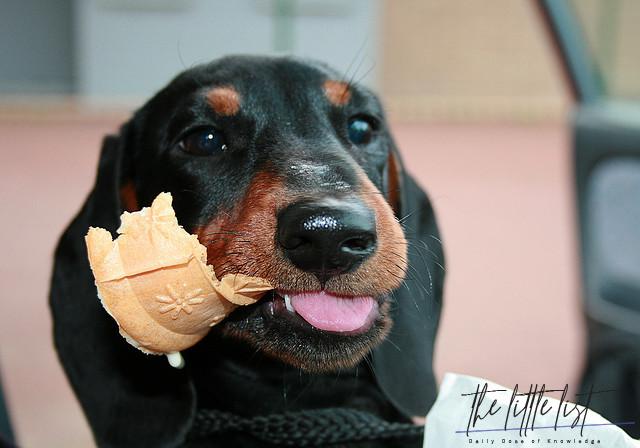Do dogs pick a favorite person?
Dogs often choose a favorite person who matches their own energy level and personality. … In addition, some dog breeds are more likely to bond with a single person, making it more likely that their favorite person will be their only person.
Also, How do you know if your a dog’s favorite person?
When they’re attached to you, dogs:
- Make eye contact.
- Check in with you.
- Are happy to see you.
- Are relaxed with you.
- Snuggle your stuff.
- Listen and respond to you.
- Seek out your affection.
How do you know a dog trusts you?
6 Signs Your Dog Trusts You With His Life
- He Looks You In The Eyes. …
- He Comes To You For Cuddles. …
- He’s Confident And Relaxed Around You. …
- He Responds Well To Your Training. …
- He’s Calm When You Leave. …
- He Looks To You For Reassurance And Guidance.
How do I know if my dog has bonded with me?
Signs of a Strong Bond
There’s a real light in their eyes; they smile, wag, rub into you, and makes great eye contact. When you come home, they brighten up, becomes animated, and may even vocalize their joy. Other signs of a strong bond include: Keeping tabs on your location when they are off leash.
Why do dogs press head against you?
While this might be the case, is it the only explanation for this behavior or are there other reasons why your dog pushes his face against yours? … Dog experts and animal psychologists demystify this behavior in the post below.
How do you tell if your dog is guarding you?
“Guarding behavior is often a sign that your dog feels you belong to its pack. A guarding dog might sit next to the table, facing away from you while you eat or stand immediately in front of another dog if you are sitting nearby,” said Szydlowski.
Why do dogs like their belly rubbed?
Dogs love belly rubs simply because they feel good. … Experts believe that dogs love petting, and belly rubs in particular, because the stroking of hair is linked to social grooming. When your dog rolls over on their back and offers you their belly it’s a sign that your dog trusts you, not just a sign of submission.
What does it mean when a dog imprints on you?
What we often call “imprinting behavior” in dogs generally means “bonding.” A dog raised properly does not mistake herself for a human, but does come to regard humans, and usually one human in particular, as the source of food, shelter, and safety.
Why do dogs lay on you?
Dogs will lay next to or on top of people they feel connected to or have a close bond with. Allowing your pooch to lay by your side or on your lap strengthens the bond you share and is considered a sign of affection. … All dogs, regardless of breed, show their affection in one way or another.
Can a dog be too attached to its owner?
Some dogs develop a dysfunctional hyper attachment to their owners that causes anxiety when their owner is out of sight, and many of these dogs are also velcro dogs. If your dog gets anxious when they’re unable to follow you around they have separation anxiety, not just velcro dog syndrome.
Do dogs see us as parents?
While our dogs may look a little bit different than human children, this study shows that their feelings towards us are similar. Just like human children, our dogs look to their “parents” to provide them with feelings of security and reassurance when exploring their environment.
How do you know if your dog doesn’t respect you?
Does your dog wake you up? If your dog wakes you up, it means he doesn’t respect you. In order to correct this behavior, you will need to change your dog’s habits to let him know that you are the one who will wake him up. So if your pup tries to wake you up, simply ignore him.
Why does my dog put his paw on me?
If your dog puts his paw on you, it can be his way of saying “I love you.” We pet our pups to show our love and affection. Turns out they do the same. … But if your pup is showing signs of anxiety, “such as lip smacking, yawning, and flat ears,” it could mean he’s feeling insecure and is looking for affection.
What does it mean when a dog sigh?
Another sound of contentment is the sigh, usually accompanied by the dog lying down with its head on its forepaws. When the sigh is combined with half-closed eyes, it communicates pleasure; with fully open eyes, it communicates disappointment: “I guess you are not going to play with me.”
Do dogs get jealous?
The researchers found that dogs will go so far as to show jealousy even when they can only imagine their owners are interacting with a potential rival. … The new study said dogs are one of the few species that display jealous behaviors in ways that a human child might when their mother gives affection to another child.
Are dogs more protective of female owners?
Is a Dog More Protective of Female Keepers? This isn’t a general rule, but some pets are more likely to exhibit protective behavior with female keepers. This is because women generally have a softer voice and are gentler whenever they care for the dog.
Should I pee on my dog to show dominance?
Your dog feels the need to assert his dominance or ease his anxiety by laying out his boundaries. He does this by depositing small amounts of urine on anything he feels belongs to him—the furniture, the walls, your socks, etc. Urine-marking is most often associated with male dogs, but females may do it, too.
Do dogs feel love when you kiss them?
Many dog owners talk to their dogs in a cutesy or gentle tone when they are kissing them, and the dog learns to associate the kisses with the gentle tone. They will, therefore, respond accordingly, and once they get used to kisses and cuddles, will often show signs of affection back in their own doggy way.
Why do dogs like balls so much?
The ball is an item dogs love specifically because they can chase it well, it can fit in their mouth easily, they can spot it, and it is fast. … Playing fetch makes your dog feel good. When they chase the ball and retrieve it, this is a deed accomplished and their body knows it. This is how they are as dogs.
What does it mean when a dog rolls on his back?
Dogs roll on their back when they are happy because it feels nice, to get attention or belly rubs, to show respect and trust, as well as out of submissiveness or fear. In most cases, it is nothing to worry about and is both completely natural and normal.
What does it mean when your dog puts his paw on you?
If your dog puts his paw on you, it can be his way of saying “I love you.” … If your dog is showing signs of anxiety while pawing at you, it could mean he is feeling insecure and looking for you to comfort him. However, if continual pawing is related to begging for food, it’s best to ignore the behavior.
Why do dogs follow you from room to room?
Dogs will often follow their humans around because they receive attention or some other form of reward in return for this behavior. If following their pet parent around leads to treats, play time, or pets, dogs will remember and perform the behavior more frequently. Most people will find this behavior endearing.
Why do dogs steal your spot when you get up?
By jumping into your spot, they’re taking a place that represents warmth and comfort. Your scent is familiar and safe, so your dog knows instinctively that any place you’ve been is likely familiar and safe, too. This is the same reason why dogs want to be in our beds, our cars, on our furniture, and in our laps.
Why do dogs sleep with their bum facing you?
The number one reason dogs face their bums towards their owners when they’re sleeping is that they love and trust you. This sleeping position also makes your pup feel safe because he knows you’ve got his back (literally). Moreover, some dogs will do this because they are trying to mark you with their scent.



